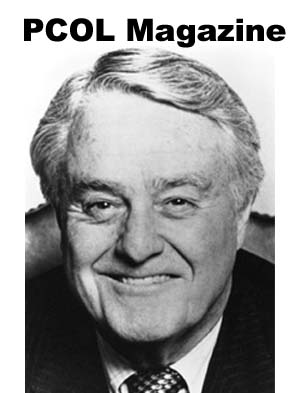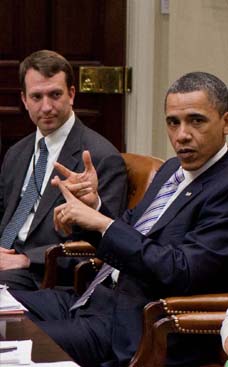
At school, I experimented. Most Nepalese education involved simple repetition, so I tried other things: pantomimes, dialogues and games. Sometimes, it worked; just as often, I fell flat on my face. The village threw a big party when I left, slaying a goat in my honor. I walked three days over the hills that took me to the bus road, crying much of the time. I went home, got married, went to grad school, had kids. And then one day more than 10 years after I had returned to the U.S., I got a phone call from a guy in Ohio who had been one of my students. After I left Nepal, he had been posted elsewhere in the country, where he met a Peace Corps volunteer and fell in love. They married and had moved to the United States. On a visit to our house, he recalled the pantomimes and dialogues, and also the time I yelled at him for teasing the girls. And when he met his future wife, she told us, the first thing he said was, "Hello, miss. Do you know Jon Zimmerman?" Last summer, I returned to Nepal with my 17-year-old daughter. The three-day walk to my village had become a three-hour one, thanks to new roads and bridges. But the village remained much the same. So did my family, and my friends there. I hadn't corresponded with anyone in the village in more than 20 years, but everyone remembered me. It was harder for me to remember them, but names started to come back to me as I met and talked with people. Up at the school, many of the teachers were my former students. One of them showed me mimeographs I had prepared, which he still uses to teach his own classes. They threw a party for us, with speeches and music. I tried to give my own speech, but I broke down in sobs, overwhelmed by the grace of these good people and by my own good fortune to have known them. "You will always be a part of us," one of the teachers said. I owe that to my father's example, and also to Sargent Shriver. Thanks, Sarge, for bringing your own outsized personality to bear on my dad, and - indirectly - on me. You will always be a part of us.
Nepal RPCV Jonathan Zimmerman writes: Sargent Shriver's lasting legacy
Sargent Shriver's lasting legacy
Op-Ed
The real legacy of the Peace Corps is its effect on human friendship, tolerance and understanding
January 21, 2011|By Jonathan Zimmerman
In 1966, my father sent a resume to the Peace Corps. A few days later, he found himself sitting across a table from the agency's director, Sargent Shriver.
"Want to go to India?" Shriver asked.
My dad was 33 years old, he had three kids, and his only overseas experience was two vacations in Europe. But he had also attended Yale Law School, like Shriver, which made both of them "certified smart guys," as Dad liked to say. So Shriver made him director of the Peace Corps in south India, and off we went.
Audacious? Yes. Arrogant? Probably. But it worked. The Peace Corps brought a whole generation of privileged, talented people into public service and global awareness. They may not have known exactly what they were doing, but they learned a great deal along the way.
And it all started with Shriver, who died Tuesday at the age of 95. As the Peace Corps' first director, Shriver embodied the agency's faith in the power of "personality," as he called it. Find the best people, he said, and everything else will be OK.
At its worst, this philosophy could yield a smug brand of insularity and incompetence. To Shriver, the "best people" were inevitably people like him: well-meaning liberals from elite circumstances. Fanning across the globe, armed mostly just with bachelor's degrees, they often found themselves completely unprepared for whatever jobs awaited them.
But most of them also forged deep and lasting connections with their hosts, which represented the upside of Shriver's gospel of personality. Of the Peace Corps' three goals, developed by Shriver, only one mentions skills or manpower. The other two emphasize cross-cultural knowledge: to help Americans understand other people, and to help them understand us.
No matter what your assignment, then, your real job was to create personal relationships with human beings different from yourself. And that's the real legacy of the Peace Corps, which celebrates its 50th anniversary this year. What has the agency accomplished for health, education or development around the world? I couldn't really tell you. But I do know its effect on human friendship, tolerance and understanding.
And I know it from personal experience, because I too joined the Peace Corps. Unlike my father, who had a decade of lawyering under his belt when he signed up, I entered straight out of college. So I was even less prepared for my assignment to teach English in the western foothills of Nepal.
What did I know about teaching, really? I had tutored a prep-school kid during college, to earn some spending money, and that was it. I picked up a few tricks during Peace Corps training, and the rest was up to me.
So I made the most of it. I lived with a family that took me in as their own, even asking me to name its newborn child. We huddled around a fire in the cold months and sat outside when it was warm, talking about everything under the sun.
At school, I experimented. Most Nepalese education involved simple repetition, so I tried other things: pantomimes, dialogues and games. Sometimes, it worked; just as often, I fell flat on my face.
The village threw a big party when I left, slaying a goat in my honor. I walked three days over the hills that took me to the bus road, crying much of the time.
I went home, got married, went to grad school, had kids. And then one day more than 10 years after I had returned to the U.S., I got a phone call from a guy in Ohio who had been one of my students. After I left Nepal, he had been posted elsewhere in the country, where he met a Peace Corps volunteer and fell in love.
They married and had moved to the United States. On a visit to our house, he recalled the pantomimes and dialogues, and also the time I yelled at him for teasing the girls. And when he met his future wife, she told us, the first thing he said was, "Hello, miss. Do you know Jon Zimmerman?"
Last summer, I returned to Nepal with my 17-year-old daughter. The three-day walk to my village had become a three-hour one, thanks to new roads and bridges. But the village remained much the same.
So did my family, and my friends there. I hadn't corresponded with anyone in the village in more than 20 years, but everyone remembered me. It was harder for me to remember them, but names started to come back to me as I met and talked with people. Up at the school, many of the teachers were my former students. One of them showed me mimeographs I had prepared, which he still uses to teach his own classes.
They threw a party for us, with speeches and music. I tried to give my own speech, but I broke down in sobs, overwhelmed by the grace of these good people and by my own good fortune to have known them.
"You will always be a part of us," one of the teachers said.
I owe that to my father's example, and also to Sargent Shriver. Thanks, Sarge, for bringing your own outsized personality to bear on my dad, and - indirectly - on me. You will always be a part of us.
Jonathan Zimmerman teaches history at New York University and is the author of "Innocents Abroad: American Teachers in the American Century."














